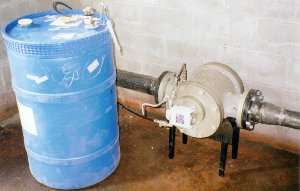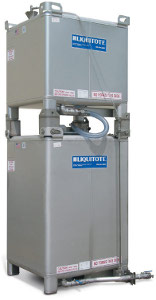A port in the storm
With today's economy, you need to get the most out of your fuel. Whether you burn diesel or bunker fuel, FPC can reduce your fuel costs and carbon footprint. Learn what so many in the industry already have, and gain a competitive advantage over your competition. Contact us today and let us partner with you to reduce your operating and maintenance costs.
We understand the value of your vessels
Having serviced the marine industry for more almost 30 years, we understand the financial investment you have made in your ships. Scientific testing from independent laboratories confirms that FPC does not alter fuel specifications in any way. Using FPC will not void the warranty on your ships. The active ingredient in FPC has been used since 1944 and has never damaged an engine of any type or size in any way, shape, or form. Tens of billions of dollars worth of equipment have been treated with FPC. FPC is listed as a non-flammable liquid for shipping within North America and does not contain chemicals that would make your fuel hazardous.
Let us earn your trust
Our manufacturing facility in the United States currently has the capacity to treat 12 million gallons of fuel each day (3 billion gallons a year), and we have the space to expand to treat 60 million gallons of fuel each day (15 billion gallons a year). The trust of our customers has made us what we are today.
We want the opportunity to earn your trust as well. When you contact us, we will be happy to answer questions from every stakeholder in each department of your organization. The ridiculous and false claims made by our competitors have built a healthy level of skepticism toward fuel additives. FPC is different. We're not looking for an instant purchase order to treat your fleet; we're looking for the opportunity to start a partnership with you, to present the wealth of testing and results from nearly 30 years of fuel treatment on marine equipment, and to answer all of the questions that your organization has about FPC. Our long relationship with the marine industry has resulted in an extensive library of independent laboratory test results, marine field test results, and testimonials from satisfied marine customers that help support our claims. Let us prove to you that you will not be wasting your time by investigating FPC.
Savings Estimate
We save our customers millions of dollars per year. We also reduce their CO2 emissions by thousands of tons per year. Take a look at our savings calculator to see how much you could be saving. The savings calculator is tailored to your industry and uses averages from our extensive testing library.
Marine Testing
We currently have 9 test reports by various marine operations and our test reports page has a total of 210 reports, which contain a total of 2,556 tests. We invite you to be the author of our newest marine test report: contact us today and let's start working together.
More than just fuel savings
FPC has many benefits, and by clicking the links below you will be taken to the test reports for the marine industry showing that FPC:
- Increases fuel efficiency
- Reduces emissions including CO2
- Eliminates organisms living in fuel tanks
- Reduces engine wear
- Reduces metal contaminants in the oil
- Reduces maintenance costs
Deployment Strategy
Some of our customers find that the existing material in our test library is sufficient to make the decision to treat their fuel with FPC. However, you may want to invest time and money in doing your own testing. We are happy to support your testing and have test equipment that will help demonstrate the benefits of using FPC.
Once the decision to treat your fuel with FPC has been made, we have a variety of options that can be used for dosing. One option is to use automatic dosing units. We have a variety to choose from and even have pump based dosing units that do not require electricity.
For cruise ships we can treat your entire fuel holds with drums or totes of FPC. We can fill the totes to a level appropriate for the size of your fuel holds if necessary. For ocean going cargo vessels, we can treat the fuel in your day-tank with either bottles of FPC or with an automatic dosing unit attached to drums or totes of FPC. Tugs can be also be treated with bottles or a small system automatic dosing unit.


